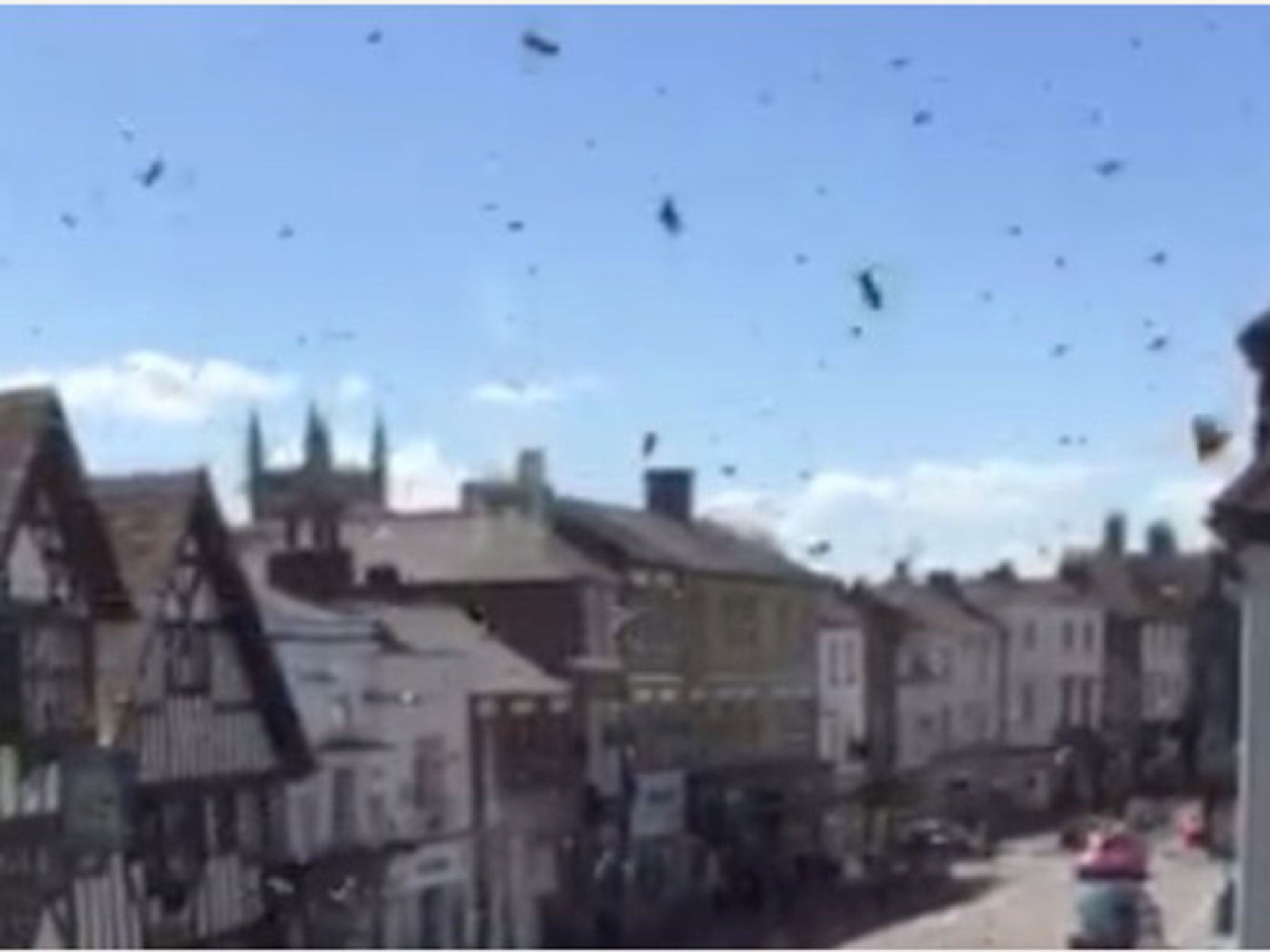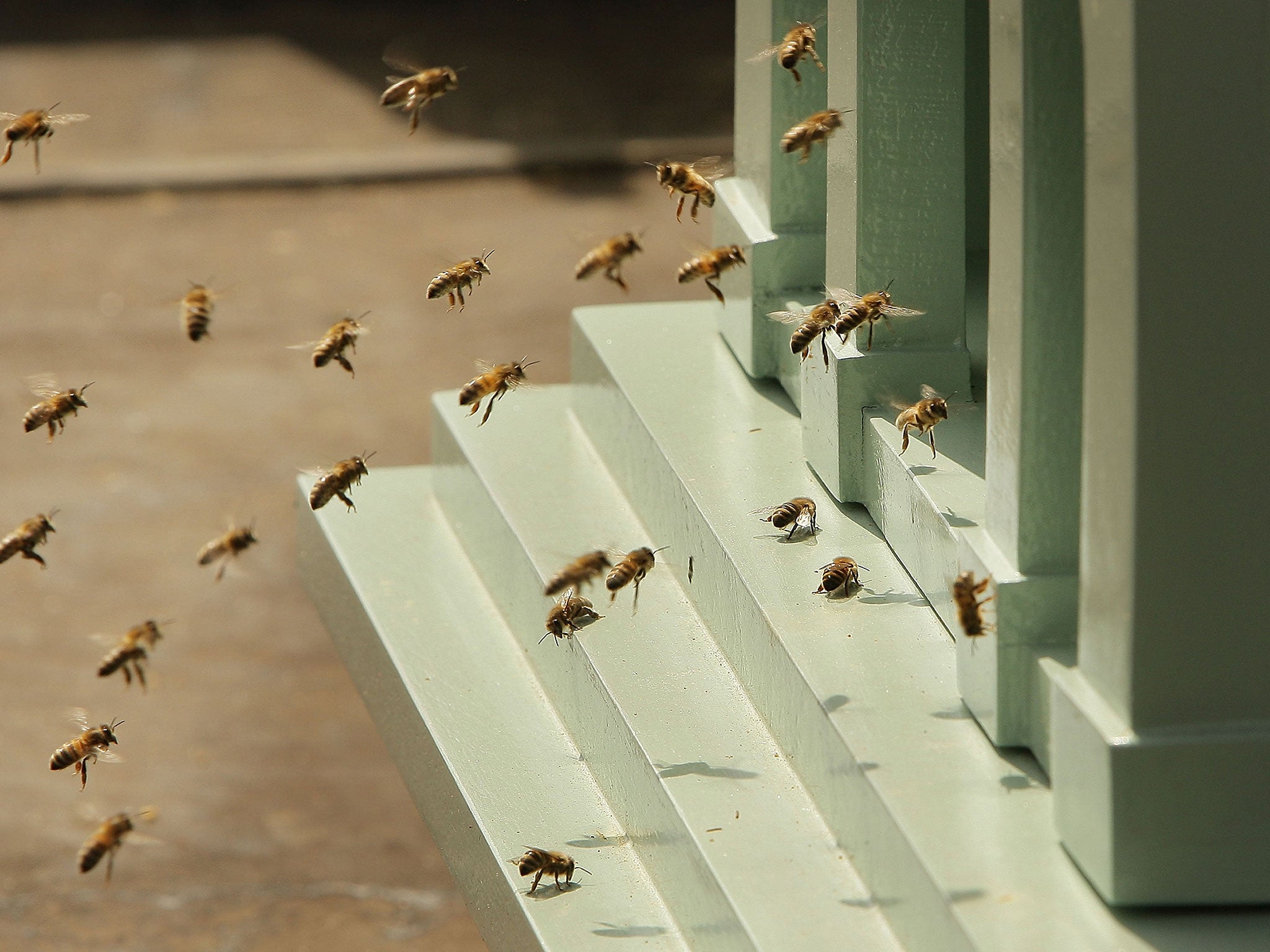Tens of thousands of bees invade the Surrey town of Farnham in 'biblical' swarm - video
Swarming is very common between the months of April and June and occurs when colonies outgrow their hives

Your support helps us to tell the story
From reproductive rights to climate change to Big Tech, The Independent is on the ground when the story is developing. Whether it's investigating the financials of Elon Musk's pro-Trump PAC or producing our latest documentary, 'The A Word', which shines a light on the American women fighting for reproductive rights, we know how important it is to parse out the facts from the messaging.
At such a critical moment in US history, we need reporters on the ground. Your donation allows us to keep sending journalists to speak to both sides of the story.
The Independent is trusted by Americans across the entire political spectrum. And unlike many other quality news outlets, we choose not to lock Americans out of our reporting and analysis with paywalls. We believe quality journalism should be available to everyone, paid for by those who can afford it.
Your support makes all the difference.In Ancient Egypt, it was crop-destroying of locusts.
In 17th century London, it was rats carrying the plague.
Now Farnham, Surrey, has been hit with its own “biblical" animal invasion after tens of thousands of bees converged on the town on Monday afternoon.
Speaking to local newspaper, Get Surrey, Swift said: "It was like something out of the Bible.
“We were all sitting there with the windows open as it was a hot day when a few bees flew into our office.
"I looked outside and the sky was black with bees, it was just extraordinary. Everyone slammed their windows shut.”
“People outside were running around thinking that the bees were chasing them, all the cars came to a stop,” said Swift. "It was like something from a horror movie. It was very spooky as there was no noise.”
Despite the descriptions of “blackened skies” and “biblical proportions”, Gill Maclean, spokesperson for the British Beekepers Association, said swarms like this are not “unnatural or unusual for this time of the year.”
Speaking to The Independent, Maclean explained that swarming was the “natural way of bees increasing their numbers.”

She said swarms occur when a hive becomes overcrowded and the number of bees outstrips the amount of space in the hive.
As a result, a new queen is produced and the old queen and as much as 20,000 worker bees are forced to look for an appropriate spot to set up a new colony.
According to Maclean, the main swarming season occurs between the months of April and June, the time when bee numbers build up in the colonies.
She advised anyone who comes across a swarm to contact a trained beekeeper so that they can collect the bees and transport them to a new beehive.
Click here to find out more information on bee swarms and where to find your local BBA registered swarm collector
Join our commenting forum
Join thought-provoking conversations, follow other Independent readers and see their replies
Comments